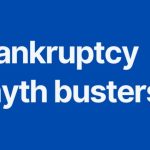The focus of the ATO’s war on illegal phoenixing has extended to tax agents who mastermind the practice.
In early August, more than 250 government officers raided 11 sites across Victoria as part of an investigation into alleged phoenix activity. The raids, conducted at business and residential sites in Melbourne and Shepparton in northern Victoria, were part of a long-term investigation into a practice believed to cost the Australian economy up to $5.13 billion annually.
Jirsch Sutherland Partner Lloyd Kerr says the focus on facilitators is an extremely positive development, though emphasises that only a tiny minority of agents are involved.

“The people being targeted by the ATO are not the suburban accountant who’s pushed the envelope to try and help a client that they love dearly,” he says. “These are people who are making a habit, a career even, of assisting directors to strip assets and leave creditors, predominately statutory creditors, holding the baby. These people could be accountants, lawyers, or people with no professional body memberships who hang around the fringes of business.”
Significantly, scalps have already been claimed in the government’s war on the illegal corporate practice, which sees companies sink before their assets are subsequently resurrected in new businesses, leaving behind unpaid bills and tax obligations. Last financial year, the ATO issued tax bills totalling more than $270-million resulting from over 340 reviews and audits of businesses involved in phoenix activity. From July 2017 to March 2018, there have been seven criminal prosecutions, with a further 34 individuals disqualified.
Stripping assets
When it comes to the methods undertaken to instigate a phoenixing strategy, Lloyd says there are many ways that unscrupulous operators might strip a company’s assets.
“There’s the classic one of physical assets just disappearing,” he explains, adding that the construction, transport, light engineering and labour hire industries are classic hotbeds for phoenixing activity. “It could be machinery, lathes or generators for example. It could even be the sorts of things that perhaps aren’t registered. In some of these cases, the business has been set up to fail. They do so in a way that allows them to either quarantine assets or shuffle them during the course of events. It’s also done in a way that’s going to generate turnover to allow them to build up an un-payable debt. Then they abandon the entity.”
Apart from costing the national economy billions, Lloyd says the end result of phoenxing also creates significant challenges for reputable licensed insolvency practitioners who arrive on the scene once the damage has been done.
“The issue that we’ve been facing as reputable licensed insolvency practitioners is pre-packs, where somebody who’s not regulated, convinces or assists directors to do the wrong thing and strip assets,” he says. “Then if we end up appointed to those companies, we’re unfunded, we often don’t have the requisite records, we have a great deal of difficulty in trying to get to the bottom of it and work out where the assets have actually gone.”
Lloyd says the raids in Victoria are a heartening next step.
“With the ATO and ASIC stepping up their activities in targeting illegal phoenixing, we’re hopeful that we’re going to be supported in our fight against such unscrupulous behaviour,” he adds.











